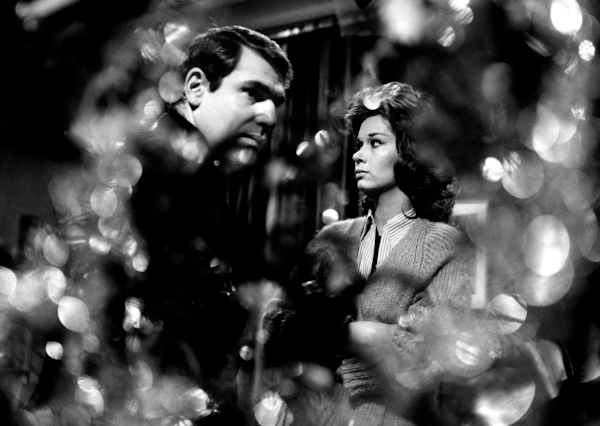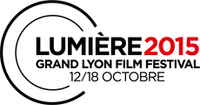Paris Pick-Up, by Marcel Bluwal
PostED on 15.10.2015 AT 11:17AM
Marcel Bluwal. Say his name and you are immediately sent back to the heroic times when there was but a single public television channel. There were four musketeers: Claude Barma, Claude Loursais, Stellio Lorenzi and Marcel Bluwal, who fought hard to bring culture to the largest number of viewers. One of his theatrical adaptations with radical biases, Dom Juan (1965), permanently inscribed the name Bluwal in the legend of groundbreaking television.

However, there is a life before television (And after television? That's trickier). In 1962, Bluwal replaces the great Clouzot, who is too busy, at short notice. Cluozot leaves Bluwal with the adaptation of an amazing screenplay by Frédéric Dard, based on one of his recent books. Enter Robert - Robert Hossein in his pre-religious trinket period, his brooding Latin-Greek good looks, still with the innate feverishness of a young man - back from a "long journey" (i.e. prison) wandering the streets of Asnieres. It's Christmas. (Frédéric Dard hated Christmas for what this holiday entails: disappointments of children and their unanswered expectations). He meets Marthe. A strange, feline and wise girl all at once, who pulls up her leopard coat to the chin to keep out the cold. He is moved by her, and we can understand his attraction. This Italian beauty is so alluring (Léa Massari, fresh off the set of Antonioni's L'Aventura); she injects a bit of movie magic into this grim, gray suburb sticky with the rain rising in the clouds above a bridge on the Seine. But the Seine is also the name of the department where Robert is no longer allowed to set foot. Yet, he has returned to visit the apartment of the memories of his mother, who died three years beforehand, thus has broken parole... Robert is later alone in the restaurant and the Italian woman dining at the next table, accompanied by a child, so silent it's as if she were gagged... One look is all it takes to bring them together. We see them already at the movies and when Robert, like a killer, puts his hand on Martha's shoulder, we feel that he's just waiting for the right time.
He will have to wait! "But you've got to be kidding me. Earlier you didn't want to, because we were at your place, now we're back at your place and you want to! So what do you want?" To understand his exasperation, it should be noted that in the meantime they went to his place, and once again, she hedged! She tells him by way of explanation: "My husband is with his mistress, which is why I don't like to be alone or at home." But she pulls him away him and we go on a crazy ride… namely in an elevator. It is not overly precise in its selection of floors, but its mechanics are as well-oiled as the relentless scenario.
Once back at the apartment, the husband of Madame is spread out on the couch with a gun in his hand, and although the little girl is supposed to be sound asleep, there's no present under the decorated tree from Robert; he had previously placed it on one of branches. There's a lot going on during their round trips! (The soundtrack, too, seems to play yo-yo; especially when the spotlight is given to the background extras, suddenly garrulous but not least insignificant). However, because of his illegal presence in the department, Robert cannot take the risk of a possible accomplice charge and must politely leave the scene.
Intrigued by this woman who drinks Chartreuse while claiming not to enjoy it, then listens to "Brazilian" music that seems Mexican, he goes back out. Determined to see more clearly, he lurks at the rattling elevator, reminiscent of the hangers of a theater of cruelty. He finally sees enough to obtain the confession from the particularly crazy Latin lady; but we won't reveal the Machiavellianism here out of respect for the lucky spectators who will attend the 11am screening on Sunday morning at Pathé Bellecour.
Let us just say she has a penchant for mimicry when it comes to furniture. Maurice Biraud, in the role of the naive witness, an American-cars salesman, vaguely leering, also contributes to the overpowering charm infused in this film, so wisely proposed as part of the Journey Though French Cinema by Bertrand Tavernier.
Pierre Collier

